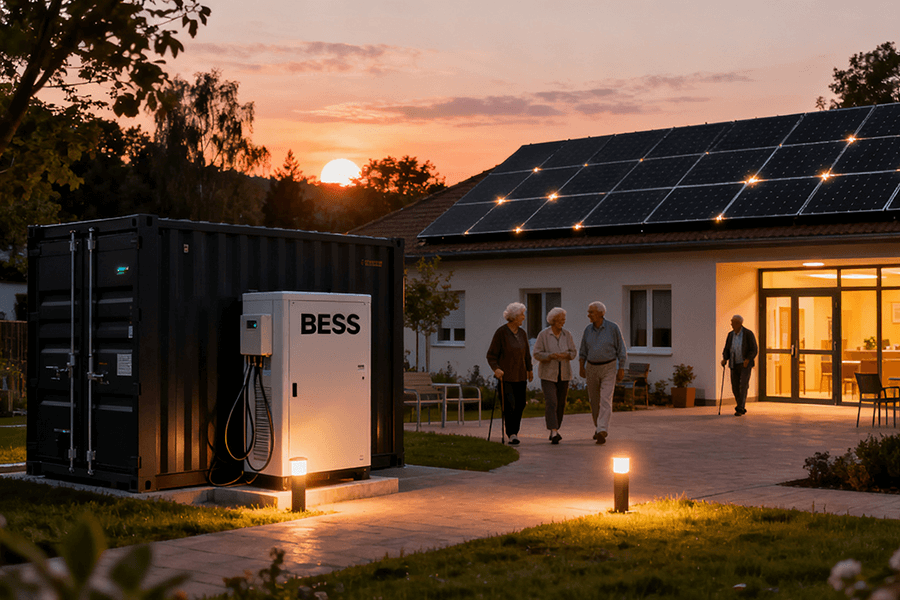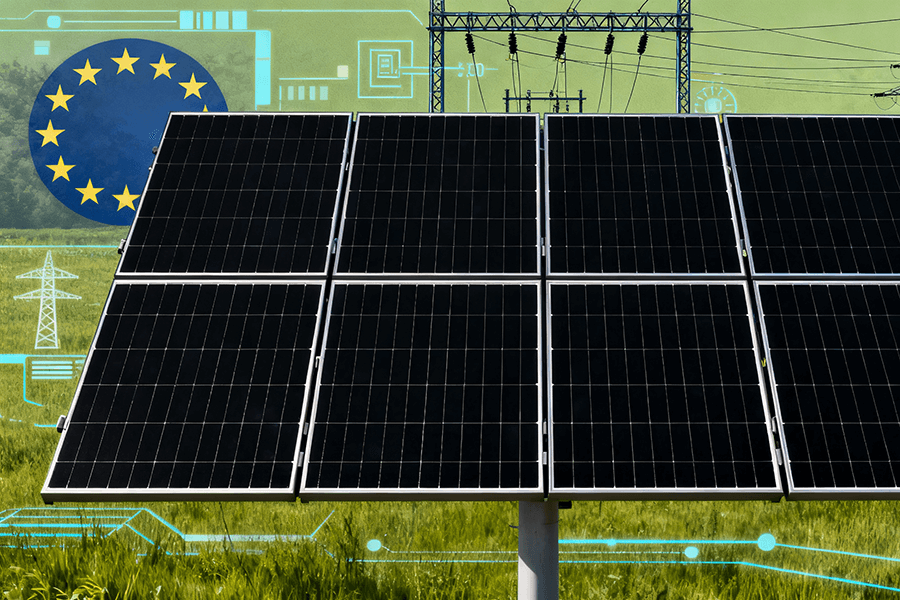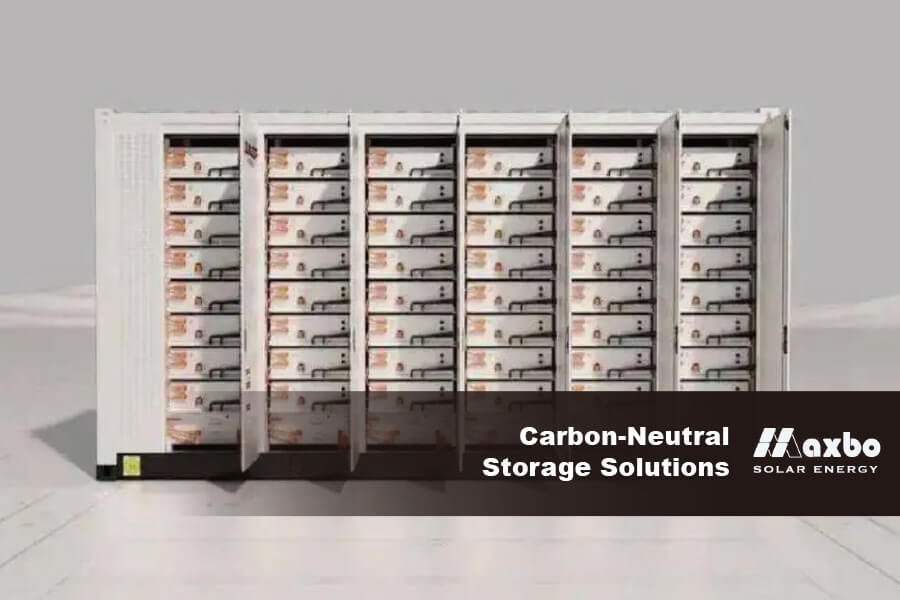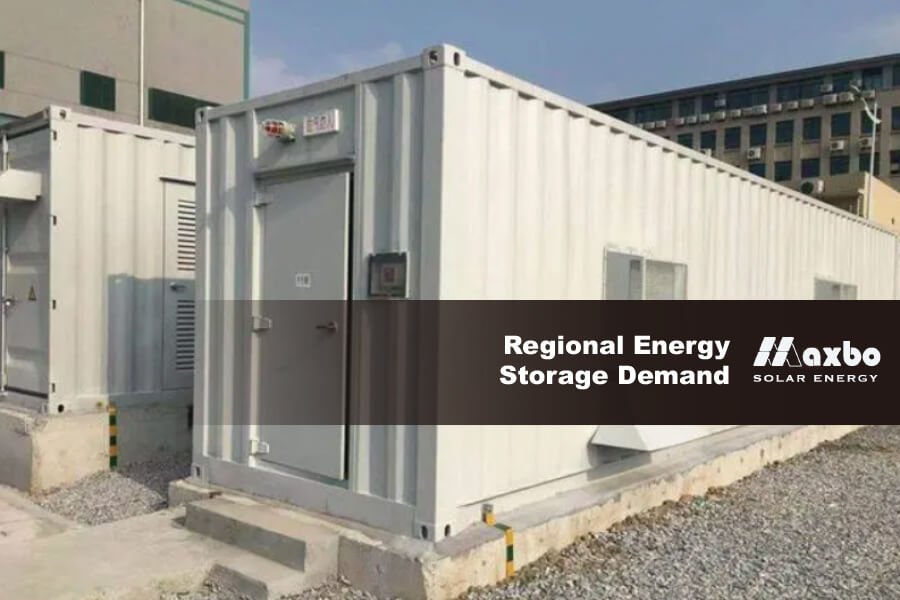Solar Energy Solutions: 7 Powerful Strategies to Maximize Your Home’s Efficiency
In an era where energy efficiency and sustainability are paramount, solar energy solutions stand out as a viable and attractive option for homeowners. With advancements in technology and decreasing costs, solar energy systems have become more accessible and efficient than ever. This comprehensive guide will explore seven powerful strategies to optimize your home’s energy efficiency using solar energy solutions. We will cover various application scenarios, grid-connected versus off-grid systems, power capacities, and more. Discover how Maxbo Solar’s solutions can help you make the most of solar energy.
Table of Contents
ToggleUnderstanding Solar Energy Solutions
Solar energy solutions harness sunlight to generate electricity or heat, providing a renewable and eco-friendly alternative to traditional energy sources. These systems typically include solar panels, inverters, and additional components tailored to meet specific needs.
Reference:
- International Energy Agency (IEA). (2022). “Solar Energy: Technology Brief.” Retrieved from IEA
1. Residential Solar Energy Solutions
Overview: Residential solar energy solutions are designed to meet the energy needs of homeowners. These systems can vary in size and complexity, depending on energy requirements and budget.
Components:
- Solar Panels: Capture sunlight and convert it into direct current (DC) electricity.
- Inverters: Convert DC electricity into alternating current (AC) used in homes.
- Mounting Systems: Secure panels to roofs or ground, optimizing angle and exposure.
- Battery Storage (Optional): Stores excess energy for use during non-sunny periods.
Application Scenarios:
- Energy Savings: Reduce monthly utility bills.
- Energy Independence: Decrease reliance on grid power.
- Environmental Impact: Lower carbon footprint by using renewable energy.
Maxbo Solar offers comprehensive residential solutions with high-efficiency panels and advanced inverters to maximize energy savings.
Reference:
- Solar Energy Materials and Solar Cells. (2021). “Residential Solar Photovoltaic Systems: Design and Implementation.” Retrieved from ScienceDirect
2. Grid-Connected Solar Energy Solutions
Overview: Grid-connected solar systems are linked to the local electricity grid, allowing homeowners to use solar energy and draw additional power from the grid when needed.
Benefits:
- Net Metering: Sell excess energy back to the grid, earning credits or payments.
- Reliability: Continuous power supply, even when solar production is low.
- Cost-Effectiveness: Reduced initial investment compared to off-grid systems.
Components:
- Solar Panels: High-efficiency modules optimized for grid connection.
- Grid-Tie Inverters: Convert DC to AC and ensure compatibility with grid standards.
- Monitoring Systems: Track performance and energy production.
Maxbo Solar provides state-of-the-art grid-connected solutions with seamless integration and real-time monitoring.
Reference:
- IEEE Transactions on Power Electronics. (2022). “Advancements in Grid-Tied Solar Systems.” Retrieved from IEEE Xplore
3. Off-Grid Solar Energy Solutions
Overview: Off-grid solar systems operate independently of the local electricity grid, ideal for remote locations or areas with unreliable grid access.
Benefits:
- Energy Autonomy: Complete independence from grid power.
- Remote Access: Suitable for locations without electrical infrastructure.
- Sustainability: Provides a renewable energy source in isolated areas.
Components:
- Solar Panels: High-capacity panels to meet energy needs.
- Inverters: Off-grid inverters designed for battery storage integration.
- Battery Storage: Essential for storing energy for use during non-sunny periods.
- Charge Controllers: Manage energy flow to and from the batteries.
Maxbo Solar offers reliable off-grid systems with durable components and comprehensive support for remote installations.
Reference:
- Journal of Energy Storage. (2021). “Off-Grid Solar Energy Systems: Challenges and Innovations.” Retrieved from Elsevier
4. Hybrid Solar Energy Solutions
Overview: Hybrid solar systems combine grid-connected and off-grid features, providing flexibility and backup power during outages or peak demand.
Benefits:
- Versatility: Operates both with and without grid power.
- Backup Power: Ensures continuous operation during grid failures.
- Optimized Usage: Utilizes both stored energy and grid power as needed.
Components:
- Solar Panels: Integrated with both grid-tied and off-grid features.
- Hybrid Inverters: Manage both solar energy and battery storage.
- Battery Storage: Provides backup power and energy management.
- Smart Controllers: Optimize energy distribution between solar, battery, and grid.
Maxbo Solar’s hybrid solutions offer the best of both worlds, combining reliable performance with advanced energy management.
Reference:
- Renewable and Sustainable Energy Reviews. (2022). “Hybrid Solar Systems: Integration and Performance.” Retrieved from ScienceDirect
5. Small-Scale vs. Large-Scale Solar Energy Solutions
Overview: Solar energy solutions vary in scale, from small residential systems to large commercial installations, each catering to different energy needs.
Small-Scale Systems:
- Applications: Ideal for homes and small businesses.
- Components: Typically include fewer panels and a smaller inverter.
- Cost: Lower initial investment with a focus on energy savings.
Large-Scale Systems:
- Applications: Suitable for commercial buildings and industrial sites.
- Components: High-capacity panels, multiple inverters, and large battery banks.
- Cost: Higher initial investment but with substantial energy savings and potential for grid contributions.
Maxbo Solar provides tailored solutions for both small and large-scale installations, ensuring efficient energy solutions regardless of scale.
Reference:
- Energy Reports. (2023). “Small vs. Large-Scale Solar Energy Systems: Performance and Economics.” Retrieved from Elsevier
6. Residential Solar Energy Solutions for Different Climates
Overview: The effectiveness of solar energy solutions can vary based on climate and weather conditions. It’s essential to choose a system that performs well in your specific environment.
Components:
- Solar Panels: Select high-performance panels suitable for your climate.
- Inverters: Ensure inverters are designed to handle local temperature extremes.
- Mounting Systems: Choose mounts that can withstand local weather conditions.
Climate Considerations:
- Sunny Climates: High-efficiency panels with optimal tilt and orientation.
- Cloudy or Rainy Climates: Panels with high low-light performance and robust storage solutions.
- Extreme Temperatures: Systems designed for high durability and efficiency.
Maxbo Solar offers climate-specific solutions to ensure optimal performance in various environmental conditions.
Reference:
- Journal of Renewable and Sustainable Energy. (2022). “Climate Impacts on Solar Energy Systems.” Retrieved from AIP Publishing
7. Cost Considerations and Incentives for Solar Energy Solutions
Overview: The cost of solar energy solutions can vary based on system size, components, and installation. Understanding these factors and available incentives can help you make an informed decision.
Cost Factors:
- System Size: Larger systems typically cost more but offer greater savings.
- Component Quality: High-efficiency components may have a higher upfront cost but provide better long-term savings.
- Installation: Professional installation ensures optimal performance but adds to the total cost.
Incentives:
- Federal Tax Credits: Available in many regions to reduce initial costs.
- State and Local Rebates: Various programs offer additional savings.
- Net Metering: Allows you to sell excess energy back to the grid, reducing overall costs.
Maxbo Solar helps you navigate cost considerations and take advantage of available incentives to maximize your investment in solar energy solutions.
Reference:
- BloombergNEF. (2023). “Cost Trends and Incentives for Solar Energy Systems.” Retrieved from BloombergNEF
Detailed Breakdown of Solar Energy Solutions
To fully grasp the benefits and implementation of solar energy solutions, it’s essential to delve deeper into the specifics of each system component and their interrelationships. Here’s a comprehensive guide on how to choose the best solar energy solution for your home, based on various needs and configurations.
1. Solar Panels: Types and Considerations
Monocrystalline Panels:
- Efficiency: Typically 15-22%, making them the most efficient type of solar panel available.
- Appearance: Uniform dark color with rounded edges.
- Cost: Higher initial investment but provides more power per square meter.
Polycrystalline Panels:
- Efficiency: Generally 13-16%, slightly lower than monocrystalline panels.
- Appearance: Bluish hue with a speckled look.
- Cost: More affordable, offering a good balance between cost and efficiency.
Thin-Film Panels:
- Efficiency: Lower, typically 11-13%, but lightweight and flexible.
- Appearance: Uniform and sleek, can be used in unconventional spaces.
- Cost: Lower initial cost, suitable for large areas or specific applications.
Maxbo Solar provides a selection of high-quality monocrystalline and polycrystalline panels, ensuring you get the best balance of efficiency and cost for your residential needs.
Reference:
- Renewable Energy. (2022). “Comparative Analysis of Solar Panel Technologies.” Retrieved from ScienceDirect
2. Inverters: Types and Benefits
String Inverters:
- Function: Converts DC power from multiple panels into AC power.
- Advantages: Cost-effective and easy to install.
- Limitations: Performance can be affected by shading or malfunctioning panels.
Microinverters:
- Function: Converts DC power at the individual panel level.
- Advantages: Optimizes performance for each panel, ideal for shaded or unevenly lit roofs.
- Limitations: Higher initial cost compared to string inverters.
Hybrid Inverters:
- Function: Integrates solar power conversion with battery storage management.
- Advantages: Provides flexibility and backup power, suitable for systems with battery storage.
- Limitations: Can be more complex and expensive.
Maxbo Solar offers a range of inverters, including hybrid models, to ensure you have the best technology suited for your specific setup and energy needs.
Reference:
- IEEE Transactions on Industrial Electronics. (2022). “Inverter Technologies for Solar Power Systems.” Retrieved from IEEE Xplore
3. Battery Storage: Enhancing Energy Independence
Lithium-Ion Batteries:
- Characteristics: High efficiency, long lifespan, and low maintenance.
- Applications: Ideal for residential use, offering reliable energy storage and performance.
Lead-Acid Batteries:
- Characteristics: Lower cost but shorter lifespan and higher maintenance.
- Applications: Often used in off-grid or backup power systems where cost is a primary concern.
Choosing the Right Battery:
- Capacity: Select a battery with sufficient capacity to meet your energy needs during non-sunny periods.
- Integration: Ensure compatibility with your inverter and solar panel system.
Maxbo Solar provides integrated battery storage solutions, including lithium-ion options, to enhance your system’s efficiency and reliability.
Reference:
- Energy Storage Systems. (2022). “Advancements and Applications of Residential Battery Storage.” Retrieved from Elsevier
4. System Configurations: Grid-Connected, Off-Grid, and Hybrid
Grid-Connected Systems:
- Configuration: Solar panels connected to the local grid via a grid-tie inverter.
- Advantages: Net metering benefits, lower upfront costs, continuous power supply.
- Considerations: Requires access to the grid and local regulations.
Off-Grid Systems:
- Configuration: Independent system with solar panels, batteries, and off-grid inverters.
- Advantages: Complete energy independence, ideal for remote locations.
- Considerations: Higher initial investment, requires careful sizing and battery management.
Hybrid Systems:
- Configuration: Combines grid connection with battery storage and solar panels.
- Advantages: Flexibility in power usage, backup power during outages, and energy optimization.
- Considerations: More complex and costly, but offers the best of both worlds.
Maxbo Solar’s hybrid solutions offer the flexibility and reliability needed for various applications, ensuring you have the right configuration for your home’s energy needs.
Reference:
- Journal of Renewable and Sustainable Energy. (2022). “Climate Impacts on Solar Energy Systems.” Retrieved from AIP Publishing
5. Small-Scale vs. Large-Scale Solar Energy Solutions
Overview: Solar energy solutions vary in scale, from small residential systems to large commercial installations, each catering to different energy needs.
Small-Scale Systems:
- Applications: Ideal for homes and small businesses.
- Components: Typically include fewer panels and a smaller inverter.
- Cost: Lower initial investment with a focus on energy savings.
Large-Scale Systems:
- Applications: Suitable for commercial buildings and industrial sites.
- Components: High-capacity panels, multiple inverters, and large battery banks.
- Cost: Higher initial investment but with substantial energy savings and potential for grid contributions.
Maxbo Solar provides tailored solutions for both small and large-scale installations, ensuring efficient energy solutions regardless of scale.
Reference:
- Energy Reports. (2023). “Small vs. Large-Scale Solar Energy Systems: Performance and Economics.” Retrieved from Elsevier
6. Residential Solar Energy Solutions for Different Climates
Overview: The effectiveness of solar energy solutions can vary based on climate and weather conditions. It’s essential to choose a system that performs well in your specific environment.
Components:
- Solar Panels: Select high-performance panels suitable for your climate.
- Inverters: Ensure inverters are designed to handle local temperature extremes.
- Mounting Systems: Choose mounts that can withstand local weather conditions.
Climate Considerations:
- Sunny Climates: High-efficiency panels with optimal tilt and orientation.
- Cloudy or Rainy Climates: Panels with high low-light performance and robust storage solutions.
- Extreme Temperatures: Systems designed for high durability and efficiency.
Maxbo Solar offers climate-specific solutions to ensure optimal performance in various environmental conditions.
Reference:
- Journal of Renewable and Sustainable Energy. (2022). “Climate Impacts on Solar Energy Systems.” Retrieved from AIP Publishing
7. Cost Considerations and Incentives for Solar Energy Solutions
Overview: The cost of solar energy solutions can vary based on system size, components, and installation. Understanding these factors and available incentives can help you make an informed decision.
Cost Factors:
- System Size: Larger systems typically cost more but offer greater savings.
- Component Quality: High-efficiency components may have a higher upfront cost but provide better long-term savings.
- Installation: Professional installation ensures optimal performance but adds to the total cost.
Incentives:
- Federal Tax Credits: Available in many regions to reduce initial costs.
- State and Local Rebates: Various programs offer additional savings.
- Net Metering: Allows you to sell excess energy back to the grid, reducing overall costs.
Maxbo Solar helps you navigate cost considerations and take advantage of available incentives to maximize your investment in solar energy solutions.
Reference:
- BloombergNEF. (2023). “Cost Trends and Incentives for Solar Energy Systems.” Retrieved from BloombergNEF
Conclusion
Solar energy solutions offer significant benefits, including cost savings, energy independence, and environmental sustainability. By understanding the different components, configurations, and financial aspects, you can make an informed decision that best suits your home’s needs.
Maxbo Solar is committed to providing high-quality solar energy solutions tailored to meet a variety of needs. Whether you are interested in residential solar systems, grid-connected or off-grid solutions, or hybrid systems, our expert team is here to assist you every step of the way.
For more information on how Maxbo Solar can help you achieve your energy goals with efficient and effective solar energy solutions, visit Maxbo Solar today.
References:
- International Energy Agency (IEA). (2022). “Solar Energy: Technology Brief.” Retrieved from IEA
- Solar Energy Materials and Solar Cells. (2021). “Residential Solar Photovoltaic Systems: Design and Implementation.” Retrieved from ScienceDirect
- IEEE Transactions on Power Electronics. (2022). “Advancements in Grid-Tied Solar Systems.” Retrieved from IEEE Xplore
- Journal of Energy Storage. (2021). “Off-Grid Solar Energy Systems: Challenges and Innovations.” Retrieved from Elsevier
- Renewable and Sustainable Energy Reviews. (2022). “Hybrid Solar Systems: Integration and Performance.” Retrieved from ScienceDirect
- Energy Reports. (2023). “Small vs. Large-Scale Solar Energy Systems: Performance and Economics.” Retrieved from Elsevier
- Journal of Renewable and Sustainable Energy. (2022). “Climate Impacts on Solar Energy Systems.” Retrieved from AIP Publishing
- BloombergNEF. (2023). “Cost Trends and Incentives for Solar Energy Systems.” Retrieved from BloombergNEF
Maxbo Solar is here to help you make the most of your investment in solar energy. Contact us today to learn more about how our solar energy solutions can benefit your home and your future.
Related Solutions
Related Blogs
BESS Container for European Community Senior Day Care Centers: Europe’s “No-Panic” Power Hero – Keeping Lights On, Meals Hot, and Seniors Smiling
行政2025-11-18T11:17:06+08:00November 18th, 2025|Categories: Design, News|
BESS Container in EU Grid Three-Phase Load Balancing: The EU Grid’s “Phase Whisperer” – Fixing Imbalance Faster Than a Barista Makes Latte
行政2025-11-18T11:16:22+08:00November 18th, 2025|Categories: Design, News|
Let’s Make Things Happen
Add notice about your Privacy Policy here.
Let’s Make Things Happen
”The Maxbo team of sales consultants will continue to enrich our own expertise and experience to empower the development of sustainable energy with rigor.“
Maxbo CEO
You will need to provide: 1. the amount of electricity used. 2. the type and power of the load. 3. the electricity consumption habits (daytime/nighttime consumption). 4. the need to store electricity. 5. the need to feed electricity to the mains. 6. drawings or address of the installation site. 7. other special requirements
We can provide you with a quotation, a specification for all products, a circuit connection diagram and a diagram of the installation and placement of the PV panels. Any other requirements and adjustments needed can be discussed with our team.
We can meet the needs of most scenarios, whether your application is for domestic, commercial and industrial use, in remote areas, or for grid-level energy storage, we have experienced colleagues to design and deliver the right solution.
Add notice about your Privacy Policy here.
How much solar power do I need?
Most homes need 5–12kW, depending on your energy use and location.
Off-grid vs. grid-tied — what’s the difference?
Off-grid works without the utility grid; grid-tied lets you sell extra power back.
Do I need permits?
Usually yes — check local rules or ask us for guidance.
How long does a battery last?
Depends on size and load. A 5kWh battery can power a fridge for about 40 hours.
Can I upgrade my system later?
Yes, our systems are modular and easy to expand.
Does Maxbo offer installation?
We ship globally and connect customers with trusted local installers.






